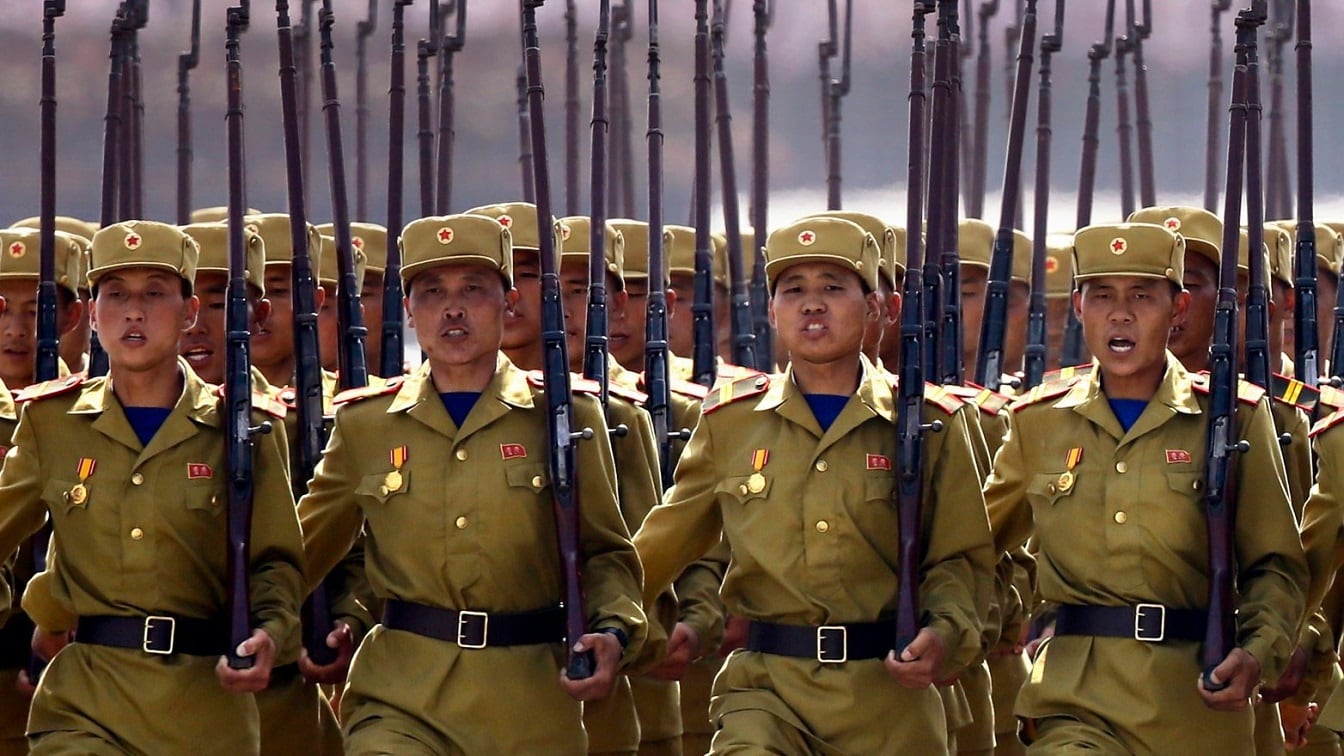South Korean President Yoon Suk Yeol began his five-year term on May 10 with a midnight security briefing from the ROK Joint Chiefs of Staff. This meeting, which precedes a May 21 summit between Yoon and U.S. President Joe Biden, reflects Yoon’s view that North Korea is the South’s “main enemy.”
Yoon’s presidency comes at a tumultuous time in U.S. foreign policy. Vladimir Putin’s war against Ukraine continues, and it enjoys Chinese support. Strategic competition is expanding with Beijing in the Indo-Pacific. North Korea’s Kim Jong Un has conducted 16 missile tests in 2022 so far. Raising the possibility of internal instability in North Korea is the COVID-19 outbreak that Kim has finally admitted to, after more than two years of claiming zero cases in the country.
In this context, the South Korea-U.S. alliance remains as important as ever. The upcoming summit provides an opportunity not only to reaffirm the alliance at the start of the Yoon administration, but also to build on the ROK-U.S. vision laid out in the May 2021 summit.
Opening a New Chapter
After that summit, the White House released a joint statement with Seoul, along with a fact sheet describing a new way forward for the alliance beyond the sides’ traditional military partnership. The documents outlined the alliance’s role in the Indo-Pacific and throughout the world in fields such as cyber, technology and innovation, and global health. They also describe the newly established U.S.-ROK Democracy and Governance Consultations.
However, the statement had a major omission: It did not call for a free and unified Korea.
Peaceful Unification
All South Korean and U.S. presidents since 2009 have called for peaceful unification of the Korean peninsula. The goal was emphasized during summit meetings in 2009, 2013, 2015, and 2017. While these declarations might seem merely aspirational, the division of the peninsula beginning in 1945 gave root to seven-plus decades of conflict, instability, and suffering — particularly among the Korean people living in the North. Biden previously called for peaceful unification in 2013 and 2020, first as vice president and then as a presidential candidate.
Yoon seeks to restore this policy. On Tuesday, he delivered an inauguration speech affirming the importance of freedom 32 times, peace 14 times, democracy seven times, and human rights five times. Although he did not specifically call for a free and unified Korea, a cursory analysis shows that he was describing the vision of a free Korea for all Koreans, in the North and in the South.
Only a unified Korea can achieve the vital goal of denuclearization. South Korea, the United States, China, Russia, and Japan have tried for three decades to negotiate the denuclearization of North Korea, but their efforts have all failed. Both Biden and Yoon should recognize that the only way to end Pyongyang’s nuclear program and its crimes against humanity is to seek unification. They should make an ironclad commitment to this objective.
This policy is also more urgent given the possibility of internal instability in North Korea. The COVID outbreak could be worse than the Arduous March, or the famine of 1994-1996. It could accelerate the regime’s breakdown in a way famine did not. Perhaps anticipating this, the regime told the Korean people in April 2021 to prepare for conditions worse than the 1990s famine. The alliance may have to intervene if North Korea’s regime collapses. If so, Seoul must be ready to carry out the unification process.
Four Actions from the Summit
To that end, Biden and Yoon should take four steps.
First, the two sides should establish a presidential-level strategic unification task force that can provide guidance and oversight of the agencies that will plan and execute a South Korea-led, U.S.-supported unification of the peninsula. A small but committed team in Seoul and Washington can solve big challenges.
Second, the U.S. and the ROK should develop a combined strategic influence campaign to prepare for unification. This requires a successful outcome of the essential ideological war on the peninsula. The Korean people have a choice between the shared ROK/U.S. value of freedom, and the authoritarian rule of Pyongyang’s Guerrilla Dynasty and Gulag State. It is time to give the Koreans a chance to choose. Testimony from North Korean escapees indicates that all Koreans long for freedom when they understand that the regime has denied them their human rights.
Third, the two allies should establish a Korean Defectors Information Institute. This will allow escapees to provide their valuable expertise to the strategic influence campaign and the unification process.
Lastly, Washington and Seoul should embrace and empower the work of civil society organizations that aim to end suffering and achieve unification. These organizations could include the Global Peace Foundation, Action for Korea United, AKU USA, and the Committee for Human Rights in North Korea. Synergistic government and civil society efforts would bring positive change to the Korean people.
Biden and Yoon have an opportunity to develop a new, long-term strategy that supports an ROK-led effort to achieve a free and unified Korea. It’s long past time for Washington and Seoul to seize it and seek to create a United Republic of Korea.
David Maxwell, a 30-year veteran of the United States Army and retired Special Forces colonel, is a senior fellow at the Foundation for Defense of Democracies (FDD), where he also contributes to FDD’s Center on Military and Political Power (CMPP). For more analysis from David and CMPP, please subscribe HERE. Follow David on Twitter @davidmaxwell161. Follow FDD on Twitter @FDD and @FDD_CMPP. FDD is a Washington-based, nonpartisan research institute focusing on national security and foreign policy.

